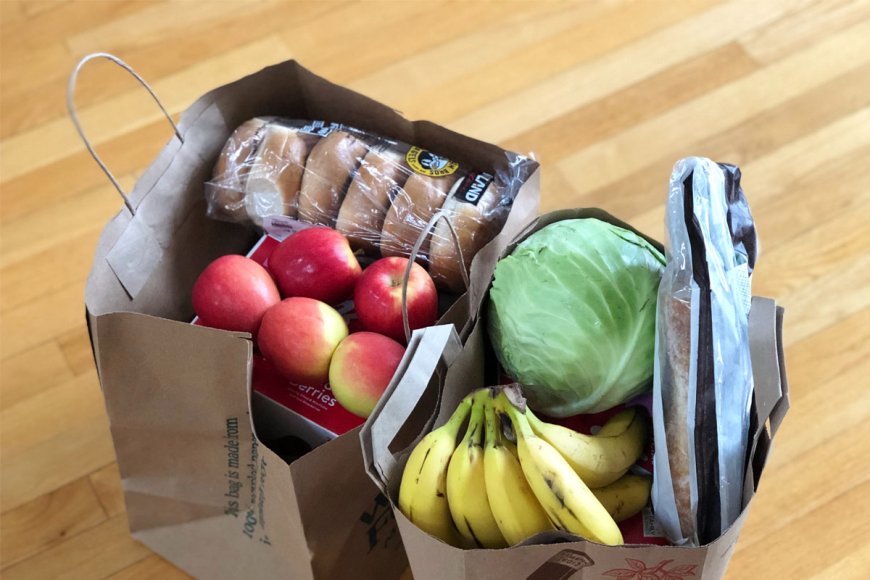Best ways to save money on groceries and household expenses

Best ways to save money on groceries and household expenses
Welcome to our article on the best ways to save money on groceries and household expenses! We all know that grocery shopping and managing household expenses can quickly add up, leaving us feeling overwhelmed by the costs.
But fear not, because we've got you covered with some tried-and-true strategies to help you stretch your dollar further.
From coupons and discounts, to savvy grocery shopping tips and meal planning hacks, we'll explore a range of practical solutions that will have you saving money in no time.
So let's dive right in and discover how you can trim those expenses without sacrificing quality or convenience!
Coupons and Discounts
Who doesn't love a good deal? Coupons and discounts are an excellent way to save money on your grocery bill and household expenses. With just a little bit of planning and effort, you can be on your way to significant savings.
Keep an eye out for coupons in newspapers, magazines, and online platforms dedicated to sharing the latest deals. Many grocery stores also offer digital coupons that you can load onto your loyalty card or smartphone app. Take advantage of these opportunities by clipping coupons for items you regularly use.
Another great way to save is by signing up for rewards programs at your favorite stores. These programs often offer exclusive discounts, personalized offers, and even cashback rewards. So why not join a few different reward programs to maximize your savings?
Don't forget about discount apps! There are several apps available that provide access to exclusive deals and rebates on groceries. Simply browse through the offers before heading out shopping, select the ones applicable to your needs, make the purchase as instructed, snap a photo of the receipt as proof of purchase – voila! Cashback right into your account.
Lastly but importantly - always compare prices! Don't assume that one store has the best price for everything on your list. Take some time each week to check prices at different supermarkets or big-box stores near you. You might find that certain items are cheaper elsewhere or even discover new places with better overall pricing!
By using coupons and taking advantage of discounts wherever possible, you can significantly reduce your grocery bills and household expenses without sacrificing quality or variety in what you buy.
Grocery Shopping Tips
Grocery shopping can often be a significant expense in our monthly budgets. However, with some smart strategies and planning, you can save money without compromising on the quality of your meals. Here are some grocery shopping tips that can help you cut down on expenses.
It's essential to make a list before heading to the store. This will help you stay focused and avoid impulsive purchases. Take inventory of what you already have at home and plan your meals based on those items. By doing so, you'll minimize wastage and only buy what is necessary.
Another tip is to compare prices between different stores or even online platforms. Don't settle for the first option; instead, do some research to find the best deals available.
Additionally, consider buying generic or store-brand products rather than name brands. These options are often cheaper but still offer comparable quality.
Furthermore, don't underestimate the power of sales and discounts! Keep an eye out for coupons or special promotions offered by stores or manufacturers. Sign up for loyalty programs if they provide additional savings opportunities.
Try shopping in bulk whenever possible. Purchasing larger quantities of non-perishable items can lead to substantial savings in the long run.
By following these grocery shopping tips, you'll be able to stretch your budget further without sacrificing taste or nutrition! So next time you head out to stock up your pantry, remember these strategies that can make a significant difference in your overall expenses.
Meal Planning
One of the best ways to save money on groceries and household expenses is by implementing a meal planning strategy. By taking the time to plan your meals ahead, you can avoid impulse purchases and make sure that you only buy what you need. Here are some tips for effective meal planning:
Take inventory of what ingredients you already have in your pantry and refrigerator. This will help you avoid buying unnecessary items.
Next, consider creating a weekly or monthly meal calendar. This way, you can assign specific meals to each day and ensure variety in your diet.
When planning your meals, try to use ingredients that are versatile and can be used in multiple dishes. For example, if you buy a pack of chicken breasts, think about how they can be used for different recipes throughout the week.
Another tip is to incorporate leftovers into your meal plan. Instead of letting them go to waste, plan a night where everyone can enjoy leftover meals from earlier in the week.
Make a detailed shopping list based on your planned meals. Stick to this list when grocery shopping and resist the temptation to buy additional items that aren't necessary.
By following these meal planning tips, not only will you save money but also reduce food waste and simplify your cooking routine!
Bulk Shopping
When it comes to saving money on groceries and household expenses, one strategy that can really make a difference is bulk shopping. Buying in bulk allows you to take advantage of discounted prices and stock up on the items you use most frequently.
One great way to start bulk shopping is by joining a warehouse club or buying from wholesale suppliers. These places often offer larger quantities at lower prices, allowing you to save money in the long run. Plus, they usually have a wide variety of products available, so you can find everything from pantry staples to cleaning supplies.
Another tip for successful bulk shopping is to be mindful of storage space. Before making your purchases, make sure you have enough room at home to properly store the items. This will prevent food waste and ensure that your bulk buys don't go bad before you can use them.
Additionally, consider teaming up with friends or family members who are also interested in saving money through bulk shopping. By pooling your resources and splitting larger quantities, everyone can enjoy the benefits without feeling overwhelmed by excess goods.
Keep an eye out for sales and promotions on bulk items at your local grocery stores or online retailers like Amazon. Sometimes these retailers offer special deals specifically designed for those looking to buy in larger quantities.
Bulk shopping can be an effective way to cut down on grocery costs while keeping your household well-stocked with essential items. Give it a try and see how much you could save!
Cutting Back on Household Expenses
Cutting back on household expenses is a goal that many people strive to achieve. By being mindful of your spending and implementing some simple strategies, you can save money and reduce the financial strain on your budget.
One way to cut back on household expenses is by reducing energy consumption. Start by switching to energy-efficient light bulbs and appliances, which can significantly lower your utility bills over time. Additionally, make it a habit to turn off lights when not in use and unplug electronic devices when they are not being used.
Another effective strategy is to shop around for better deals on essential services such as internet, cable, and insurance. Many providers offer introductory rates or discounts for bundling services. Take the time to research different options available in your area and compare prices before making a decision.
When it comes to grocery shopping, planning ahead can help you save money. Make a list of what you need before going to the store and stick to it. Avoid impulse purchases by avoiding shopping while hungry or tired – these factors can lead us astray from our initial intentions.
Consider buying items in bulk whenever possible as well. This strategy is particularly useful for non-perishable items such as toilet paper, cleaning supplies, or canned goods that have long shelf lives. Buying in bulk often offers significant savings compared to purchasing individual items.
Don't underestimate the value of DIY solutions for common household problems or tasks instead of hiring professionals or outsourcing services every time an issue arises – this will ultimately help save costs in the long run.
By implementing these strategies into your daily routine, you'll be able to effectively cut back on household expenses without compromising quality or convenience!
Conclusion
Saving money on groceries and household expenses doesn't have to be a daunting task. With the right strategies in place, you can make significant savings without sacrificing quality or convenience.
By utilizing coupons and discounts, you can easily reduce your grocery bill. Take advantage of digital coupon apps and loyalty programs offered by stores to maximize your savings. Be sure to compare prices between different retailers to find the best deals.
Implementing smart grocery shopping tips will further help you save money. Make a list before heading to the store and stick to it, avoiding impulsive purchases. Shop during off-peak hours when there are fewer crowds, as this can lead to better deals and less temptation.
Meal planning is another effective way to cut down on grocery costs. By planning your meals for the week ahead, you can create a detailed shopping list based on what ingredients you already have at home. This prevents wastage and helps you avoid last-minute takeout orders.
Consider buying items in bulk for non-perishable goods or items that have long shelf lives. Warehouse clubs or online platforms offer discounted prices for larger quantities, allowing you to stock up on essentials while saving money over time.
In addition to focusing on groceries, cutting back on household expenses is equally important when trying to save money. Evaluate your utility bills regularly and look for ways to conserve energy such as using energy-efficient appliances or adjusting thermostat settings wisely.
Making small changes like switching off lights when not needed or repairing leaks promptly can add up over time in terms of cost savings. Consider DIY projects instead of hiring professionals whenever possible for basic repairs around the house.
Being mindful of your spending habits while still maintaining a comfortable lifestyle is key when it comes to saving money on groceries and household expenses.











.jpg)



































